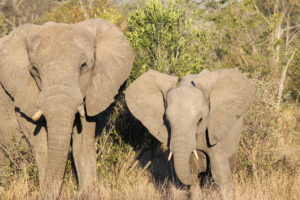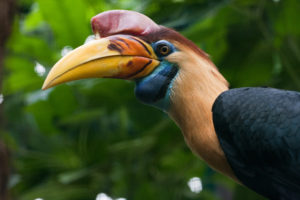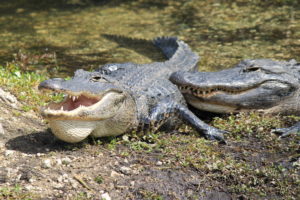Mother’s Day, as we all better remember, falls on the second Sunday of May. So, it seems fitting that on some day in May, this calendar ought to take a moment to celebrate mom.
We all think our mother deserves the award for “World’s Best Mom,” but what about all those other mothers in nature? Never fear, because this topic has been well explored, from the Animal Planet to Ripley’s Believe It or Not, and dozens of blogs in between. Here is my compendium of just some of the great moms of the animal kingdom.
Among mammals, first on most lists is the elephant, Asian or African. Elephant moms carry their unborn babies for an astonishing 22-23 months, the longest of any animal. When born, the babies are a whopping 200 pounds. Then the mother takes care of them for up to sixteen years. I guess, just like human parents, elephants get tired of dealing with their kids when they hit the teen years.

In the marine world, and for pure dedication, I nominate the octopus. Opposite the spectrum from elephants, octopus moms lay from 50,000 to 200,000 eggs. Each one may not be particularly important, but the female octopus understands that protecting the bunch is critical to survival. She carefully arranges the eggs in a shape characteristic of each species, then protects the eggs from a sea-full of hungry predators. Without time to hunt for food, the female weakens and may even eat a tentacle or two to keep nourished. And when the young octopi say goodbye, the exhausted female is so weak she usually dies or falls prey to those enemies she had kept away from the kids.
The bird category has many candidates for best mom, but most bloggers list the Red-knobbed Hornbill, a resident of Indonesia. To keep their young away from predators, including the gigantic monitor lizard, these hornbills hide the mother and eggs. They nest in tree cavities, and the female seals herself into the cavity while the male builds a wall of their own feces, with only a small slot through which the male feeds the female. Mom hornbills stays locked up for two months of incubation before emerging—and, presumably, heading straight to the spa.

Most insects are pretty cavalier about their parenting responsibilities, but not the humble earwig. Female earwigs incubate their eggs, clean fungus from them and guard them from predators. As the young emerge, the female helps remove egg fragments and grooms the young. They stay together through the second molting, a period of some months. And if the kids get particularly hungry waiting for the pizza delivery, they just might eat mom.
Alligators top the list of reptilian moms. Female alligators build large nests of rotting vegetation, which keep the eggs warm during their development. Interestingly, if the nest temperature is cooler, the young tend to hatch as females; if warmer, as males. Regardless, mother alligators care carefully for their offspring, gently holding them in those bone-crushing jaws as she goes about the daily chores. They stay together as a family for up to a year.

The lists go on, with a decided bias towards mammals. Cheetahs, polar bears, koalas, seals and orangutans appear regularly. But let’s be honest—without moms, where would any of our species be? Cheers for all of them!
(P.S. – My mom was the best!).
References:
Animal Planet. Top 10 Animal Moms. Available at: http://www.animalplanet.com/wild-animals/10-animal-moms/. Accessed May 3, 2018.
Harness, Jill. 2011. The 8 Best Mothers In The Animal Kingdom. Neatorama, May 7, 2011. Available at: http://www.neatorama.com/2011/05/07/the-8-best-mothers-in-the-animal-kingdom/. Accessed May 3, 2018.
Ripley’s Believe It or Not. 2015. The Most Amazing Moms in the Animal Kingdom. Available at: https://www.ripleys.com/weird-news/animal-moms/. Accessed May 3, 2018.
Sturrock, Leanne. 2017. Nature’s Best Mothers – Elephants to Organgutans, Take a Look at Natures Supermums. The Great Projects, Mar 26, 2017. Available at: https://www.thegreatprojects.com/blog/nature-s-best-mothers. Accessed May 3, 2018
